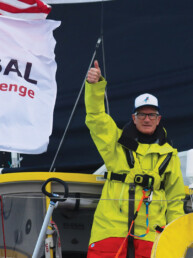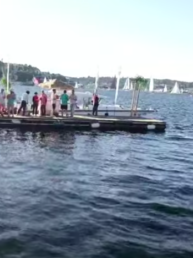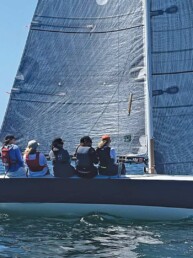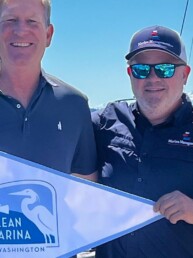The Center for Wooden Boats hosted the W.O.O.D Regatta on Seattle’s Lake Union in late September, bringing out more than 30 boats to enjoy sunshine and terrific breeze.

This year’s Norm Blanchard W.O.O.D. Regatta (Wooden Open & One Design) on Lake Union, hosted by The Center for Wooden Boats, was the biggest in recent memory with over 30 boats and 60 sailors joining for a full day of racing. The Center has a wooden boat livery, and 13 boats from their collection participated; 5 of them built by the boatwright the Regatta celebrates, Norm Blanchard. The Blanchard Boat Co. crafted more than 2,000 boats in their day, known for their high quality, performance, and longevity. The recurring Regatta, now in its 17th year, is open to all wooden boats, as well as the non-wood versions of traditional wood one-designs. The resulting fleet was diverse, ranging from 8 to 32 feet and including Pelicans, Thunderbirds, Lightnings, El Toros and more. The Regatta spanned four races, with wind speeds creeping up to 10 knots — this is considered sporty on Lake Union.
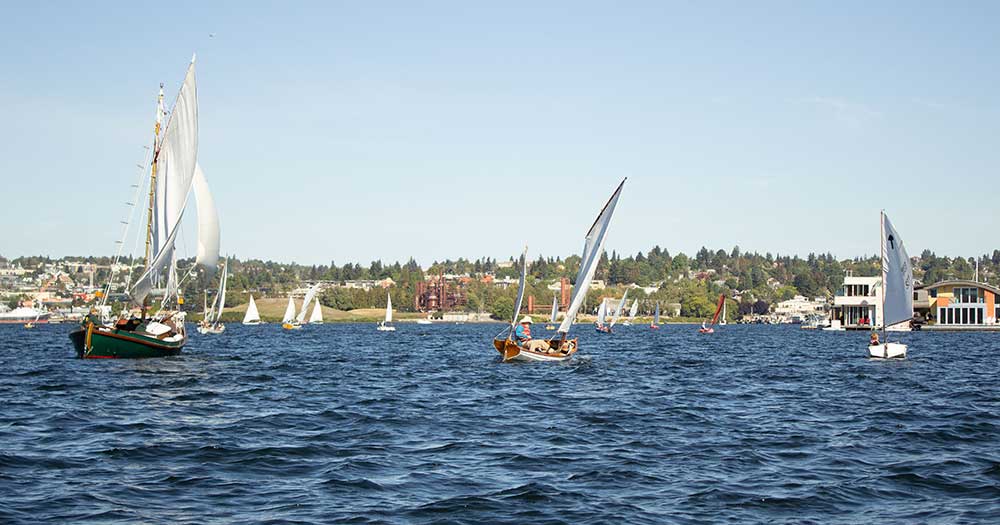
The overall winner was a Thunderbird, Makima, skippered by Matthew Upton. Moored on the Lake, the Makima team found out about the Regatta from some friendly boat-to-boat yelling in weeks prior: “There’s a wooden boat regatta coming up!” The Makima team bested the tied second places, a Blanchard Junior Knockabout, Eleanora, skippered by Christian Holtz and a Lightning, Buttermint, skippered by Jake O’Brien. Special award categories like Best Wood Classic went to Plover, a Bigelow-Kitten skippered by Bob Perkins, and Classic Plastic went to Ken Rasmussen’s beautiful red El Toro. After the races, about 150 people assembled on the Center’s docks for a post-race barbecue.
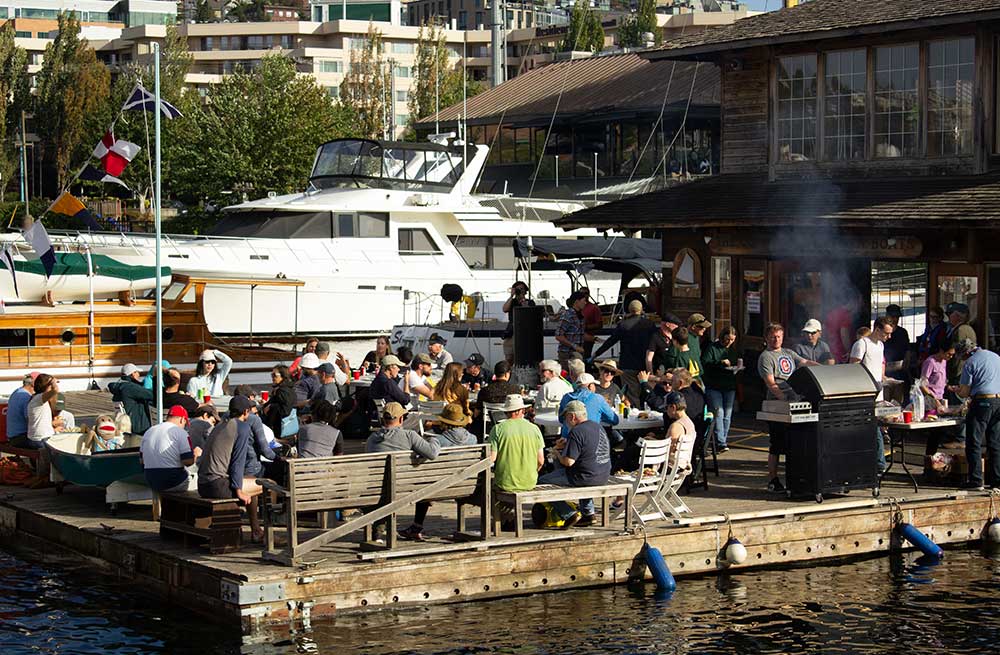
The Regatta stands out as one of the few wood-focused racing events in the area, but it is also as a way to experience the pace and environment of a regatta without the experience of being part of a regular race crew. Some boats showed up fully crewed, but many were assembled by pairing experienced sailors with fresh graduates from the Center’s learn to sail program and other new sailors. This created a very diverse set of sailors on the water, from age 10 to 70+, and from beginner to lifelong boater. The W.O.O.D. Regatta falls on the casual end of the racing spectrum, with no option to protest and polite mark roundings respectful of the porosity of the wood hulls — but there’s a rush, still, to making a 30, 40, or 80-year old wooden boat go as fast as she absolutely can in the company of her peers.
More details and full results can be found at CWB’s website.


